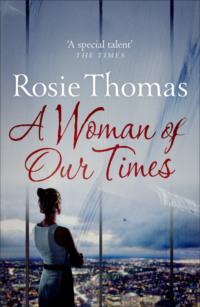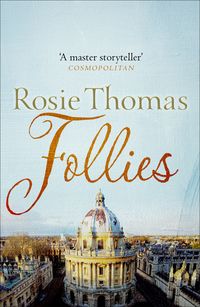
Полная версия
If My Father Loved Me
‘This is Paul Rainbird, at the school.’
I remembered now that I had spoken to him when I called to say that Jack would be away on the day of the funeral. He was Jack’s head of year.
‘Is something wrong?’ Penny and Colin dwindled, their voices obliterated by the rush of blood in my ears.
‘No, nothing at all. I wanted to ask how Jack is.’
‘Why?’
‘We haven’t seen him for three days. Is he ill?’
‘He’s been at school all week,’ I said stupidly.
‘No, I’m afraid he hasn’t.’
The lack of protest in the mornings, the dirtiness and exhaustion and his appetite in the evenings fell belatedly into place. Wherever he had been going for the last three days, it hadn’t been to school. Dismay at my own obtuseness and sharp anxiety for Jack overtook the usual nagging concern. ‘I’d better come in and see you.’
Mr Rainbird said he would be at school until six that evening. I looked at my watch. Ten to four. Colin was reluctantly shuffling out of the door.
I untied my apron and hung it up, turned off the heating element in the Pragnant and closed the open drawers of type. ‘Jack’s been bunking off,’ I told Penny. ‘I’ve got to go in and see his teacher.’
The school wasn’t far from our house, so it didn’t take me long to drive there. As I parked the car there were streams of children coming out of the gates. I pushed my way in against the current, assaulted by the noise and the display of attitude. Children came in so many shapes, sizes and colours. Some of them stared, most didn’t bother. There were so many different statements being made within the elastic confines of school uniform, so much yelling and kicking and threatening and ganging up. Survival was the prize of the fittest – and you could see which kids were the natural survivors. They were the cool ones and the disciples of the cool ones, and the others who hung around on the fringes and took their cues from them. The rest straggled on in ones and twos, keeping out of the way, trying not to attract too much attention.
Lola had been the coolest of cool. She had achieved this by breaking every school rule and defying me daily about her clothes and her hair, and her attitudes and the hours and the company she kept. But even so, even when she was at her most grungy and rebellious, on some deeper level we had still been allies. When we weren’t fighting, she told me secrets. Not hers, that would have been too incriminating, but her friends’.
‘Isn’t fourteen a bit young?’
‘Mum, you mustn’t breathe a word.’
I took this as her way of alerting me to what she was doing or about to do herself, and no doubt her friends’ mothers did likewise. Lola and I were both women and for all our differences we had the comfort of being the same.
In my mind’s eye now I saw Jack, and he was smaller and paler than all these children, and different. Different even from the wary singles. He was churned around by the alarming tide as it swept him along. I clenched my fists into tight balls in the pockets of my coat, wanting to defend him.
I found my way to the Year Seven office at the end of a green corridor lined with metal lockers.
‘Sit down, Mrs Bailey,’ the teacher said, having stood up to shake my hand. There was just about room in the cubicle for a second chair.
‘Thompson,’ I murmured. ‘I’m divorced from Jack’s father.’
Briefly my eyes met the teacher’s. Mr Rainbird was wearing a blue shirt and slightly shiny black trousers, and his colourless hair was almost long enough to touch his collar. He looked tired. If, without knowing him, I had been forced to guess his occupation I would have said English teacher in a large comprehensive school. We faced each other across the desk piled with exercise books and mark sheets and he nodded, registering my statement, before we both looked away again.
‘Is Jack being bullied?’ I asked.
‘Has he said so?’
‘He hasn’t said anything. I know he’s not happy at school, not the way my daughter Lola was, but I didn’t know it was as bad as this.’
‘I remember Lola.’ Mr Rainbird nodded appreciatively. ‘Although I never taught her. How’s she getting on?’
‘Fine.’
There was some shouting and crashing outside the door, and several sets of feet pelted down the corridor. The teacher seemed not to hear it. I thought he was used to concentrating in the face of many distractions.
‘I don’t think he’s being bullied. Jack doesn’t stand out enough, either in a bad way or a good way. He’s a loner, but that seems to be out of choice. He’s very quiet, very serious. He doesn’t say much in lessons, but he listens. His work is adequate, as you know, although he doesn’t try very hard. He gives the impression of absence. But mostly only mental absence, at least until this week. Has anything changed for him lately, at home?’
‘His grandfather died, at the very end of last term.’
The teacher looked at me. He had a sympathetic, creased, battle-worn face. I thought he must be somewhere in his late forties. How many years of teaching Shakespeare did that mean he had notched up? Twenty-five, probably.
‘Yes, I remember now. Does Jack miss him badly?’
I tried to answer as accurately as I could. ‘Not in the everyday sense, because … well, he didn’t live nearby. But now that he’s gone, yes, I think so. It’s another absence in Jack’s life.’
I realised that I had dashed here in the hope that Mr Rainbird would be able to offer me explanations for the way Jack behaved and a suggestion for how to deal with him. But this was what he was looking for from me. I was his mother and he was only his teacher.
Mr Rainbird was tapping his mouth with the side of his thumb. ‘What about his dad?’
‘Tony remarried and had two more children. They live the other side of London. He sees Jack and Lola as often as he can, but he does have another family and a lot of calls on his time. Jack lacks a male role model.’
It was stuffy in the little room with the door shut and I felt hot.
Mr Rainbird half smiled. ‘Some people would say that’s no bad thing.’
I knew he said it not as a teacher and head of Year Seven, but as himself. I wondered if he was married and whether his wife was the sort who thinks all men are monsters.
I smiled back. ‘In Jack’s case, a father figure would be helpful.’
The root of Jack’s problem was with me, but the root of that problem went back much further. Back beyond Stanley, even Tony. I could do relationships with women, I reckoned, but I got it wrong with men. From Ted onwards. The smile suddenly dried on my mouth. I blinked, afraid of another surge of irrational tears.
‘So, what should we do?’ Mr Rainbird asked. He was looking down at his hands and I knew it was to give me a chance to recompose myself. ‘He can’t afford to go on missing lessons.’
I stared hard at the pile of exercise books until I had my face under control. ‘I’ll go home and talk to him. I’ll try and get to the root of this. And I’ll make sure he comes to school on Monday.’
‘I’ll talk to him too,’ he said. ‘Maybe between us we can work out what the problem is. What do you think he’s doing instead of being at school?’
I shook my head. ‘I don’t think he’s doing anything. I think he’s … just killing time.’ He was waiting for this to be over, dreaming of when he would be old enough to change something for himself. I remembered how that was.
We both stood up and Mr Rainbird edged round his desk to open the door for me. In the confined space he had to reach past me and his shirtsleeve brushed against my shoulder. ‘Are you all right?’ he asked.
‘Yes, thanks.’ I wondered how distraught I actually looked.
‘We’ll speak again, then.’ He didn’t attempt any empty reassurances and he didn’t make authoritarian demands. I liked him. We shook hands a second time and I retraced my path down the corridor and out to the gates. The school was quiet and empty now, the tide reaching its low ebb.
Jack was sitting in his accustomed place. There was plenty of evidence of toast, cheese, jam and yoghurt having been eaten. It was no wonder that he came home hungry. He would have had almost nothing to eat since breakfast because he went out with only enough money for a bus fare and a phone call home. We both knew that to take any more would only attract muggers. Jason Smith, he once told me, had had forty pounds in his pocket in school one day and made the mistake of mentioning it.
I made myself a cup of tea and swept up some of the food debris. I could feel Jack tensely waiting for me to say something. He had been waiting yesterday too, and the day before, and when I didn’t the relief had allowed him to fall into a doze.
I turned off the television and sat down with my tea. ‘I’ve just been to see Mr Rainbird.’
He flinched, just a little. I waited, but he didn’t volunteer anything.
‘I want you to tell me why you haven’t been to school for three days.’
His face was a crescent of misery. I had been keeping my imagination in check but now it broke loose and galloped away from me. I pictured drug deals, the skinny shifty kids who hung around by the canal, a leering fat man beckoning from a doorway. The images catapulted me out of my chair and I grabbed Jack by the arms and shook him hard. ‘Where’ve you been?’ I yelled. ‘Who have you been with?’
He stared at me. His eyes had rings under them and there was dirt and jam around his mouth.
‘Where? Who?’ I shouted again and my shaking made his head wobble.
‘Nowhere,’ he breathed. ‘Just … nowhere.’
‘You must have been somewhere.’
‘I walked around. Sat on a bench. Then when it was time to come home, I came home.’
‘For three whole days?’
He nodded, mute and despairing.
I sank back on my heels and tried to take stock. I wouldn’t gain anything by allowing anger to balloon out of my fears for him. ‘That must have been horrible. Much worse than going to school. You must have felt lonely.’
If he had let some pervert befriend him, if he had been sniffing glue out of a brown-paper bag, or stealing from Sue’s Superette on the corner, or buying crack or other things that I couldn’t even imagine, would he give me a clue?
He said, ‘I watched the pigeons. They’re filthy. Did you know that there are hardly any sparrows left in London?’
I closed my eyes for a second. I didn’t know whether to be relieved or infuriated. ‘Let’s not talk about birds right now, Jack. Let’s try to work out exactly what it is about going to school that makes you so miserable you’d rather sit alone on a bench all day.’
He appeared to consider the matter. I looked at the way that tufts of hair partly exposed the pink lobe of his ear and the prickle of recent acne along his jawline. In profile he resembled Tony, increasingly so now that his proper face was emerging out of the putty softness of childhood.
‘I dunno.’ The shrug again.
‘Yes, you do. Is someone picking on you? A teacher? Other kids?’
‘Not really. They think I’m sad. But I think they’re even sadder.’
The rock of his unhappiness held glinting seams of mineral disdain. Jack was sharp-witted and he wouldn’t have much time for losers, even though he might currently consider himself to be one.
‘All of them? Everyone? Isn’t there anyone you like or admire?’
‘Mr Rainbird’s okay. Most of the girls are just lame, they’re always sniggering and whispering and fooling about. Some of the boys are all right. People like Wes Gordon and Jason Smith. But they wouldn’t be interested in me. And the rest are dumb.’
This was the most information he had volunteered in about six months, since the end of the maddening old days when he used to respond to every remark or instruction with ‘why?’.
I supposed Wes and Jason would be the cool ones, big, blunt-faced boys surrounded by hangers-on like those I had seen swaggering out of school this afternoon. I couldn’t see Jack in their company any more than he could see himself.
I pushed my luck. ‘Go on.’
His face contracted with irritation and his shoulders hunched up. It was just like watching a hermit crab pull back into its shell.
‘That’s all,’ he snapped. ‘You always want stuff. There’s nothing, all right? I’ll go back to school on Monday if that’s what you want.’
‘I want you to want to go. What I want isn’t important.’
His head lifted then and he stared straight at me. It was a full-on, cold, appraising stare that told me Jack wasn’t my baby any more. ‘Is that so?’ he sneered.
I was still catching my breath when the doorbell rang. Jack turned the television on again and increased the volume.
It was Mel on the doorstep, with two carrier bags and an armful of red parrot tulips. I had forgotten she was coming. She took one look at my face. ‘You’d forgotten I was coming.’
‘No. Well, yeah. I’m sorry. I’ve just been having a set-to with Jack.’
‘Do you want me to go away again?’
‘Depends on what’s in the bags.’
‘Sashimi-grade bluefin tuna. Limes, coriander, crème fraîche, some tiny baby peas and broad beans, a tarte au poire from Sally Clarke’s, a nice piece of Roquefort …’
I opened the door wider. ‘Come right inside.’
Mel breezed into the kitchen. Her polished brightness made the dusty shelves and creased newspapers and sticky floor tiles look even dingier than usual. My spirits lifted by several degrees.
‘Hi, Jackson.’
Jack quite liked Mel. ‘Hi,’ he muttered.
‘I’ve come to cook you and your mum some dinner. However, that’s going to be tricky if I can’t hear myself think.’
‘Oh. Right.’ He prodded at the remote and Buffy went from screeching to mouthing like a goldfish.
Mel busily unpacked fish and cheese. ‘Great. How’s school?’
I tried to signal at her but she missed the gesturing.
‘It’s shit,’ Jack said.
‘So no change there, then.’
I thought I caught the faintest twitch of a smile on his face before it went stiff again. ‘No. None.’ He stood up and eased himself out of the room.
Mel started making a lime and coriander butter. I poured us both a drink and told her what had happened. While I talked I cut the ends off the sappy tulip stalks and stood the stems upright in a glass jug. The orange-red petals were frilled with bright pistachio green. The daub of colour in the underlit room reminded me of Lola’s jersey at the cremation.
‘I’m worried. Really worried,’ I concluded. ‘I never get to the root of anything with Jack. He clams up or walks away or shuts himself in his room. I never know what he’s thinking. What must it have been like for him, wandering around with nowhere to go and nothing to do for three days? Did he talk to the old dossers? I wonder how many weirdos tried to come on to him?’
‘Worrying won’t help,’ Mel said.
‘That’s easier said, believe me. You don’t know what it’s like.’
She had been searching a drawer for some implement but now she slammed it shut. ‘Thanks for telling me.’
‘Shit. Christ. Mel, I’m sorry. I’m a thoughtless cow.’ My face and neck throbbed with shamed heat. Mel didn’t talk about it much any more, but her childlessness was still a wound.
‘Where’s your sharp knife? Oh, it’s all right. I only want to trim the fish.’
‘Sorry,’ I murmured again. ‘I don’t know what’s wrong with me.’
Mel put the knife down. She came round the worktop and wound her arms round me and I rested my head against hers. The touch was comforting.
‘I think he’ll be all right, Sadie. I’ve got no grounds for saying so, but I still think it. Trust me, I’m a City headhunter.’ It was one of the things she often said, to make me smile.
‘I do trust you. In spite of your utterly high-powered, bewilderingly incomprehensible job.’
‘Good. Remember what Lola was like when we first met?’
‘How could I forget?’
‘Right, then.’ She let go of me. ‘Now, do the veg for me, please.’
I did as I was told, dropping the little peas and fingernail-sized beans into the steamer. ‘Let’s talk about something else,’ I suggested.
‘How about me?’
‘Perfect.’
Mel shimmied the length of the worktop, rapping the knife point on jars and pans. ‘I met someone.’
‘No.’ This wasn’t exactly an infrequent occurrence. I already knew that Adrian’s days were numbered.
She stopped dancing and held up her hand. I had been so preoccupied that it was only now I noticed that her face was as bright as a star. ‘Yes,’ she said. ‘I really have met someone.’
While she told me about this latest one we finished off the cooking, stepping neatly round each other, tasting and discussing and amending, as we had done many times before. These were the evenings I liked best, the companionable times of making unhurried food in a warm kitchen while the light turned to dark outside. I laid the table with blue-and-yellow plates and put the jug of tulips in the middle. I lit a pair of yellow candles and the glow wiped out all the dust and shabby corners, and shone on Mel’s star face and the flowers, and the photograph of the children and me that Lola had taken up to Ted’s hospital bedside.
Mel flipped the tuna off the griddle. ‘It’s ready.’
I went to the foot of the stairs and called Jack. He appeared almost at once, changed out of his school clothes and with wet hair combed flat from the shower. He sidled to his chair and sat down. Immediately he started wolfing down the fish.
‘Are you hungry?’ Mel asked.
‘Yes.’ He glanced quickly at me. ‘Didn’t get anything to eat at lunchtime.’
‘And why’s that?’
‘I should think Mum told you.’
‘Yeah. Here, have some of these baby beans. So, who did you meet? What amazing things did you do that were worth missing school for?’ Mel leaned forward, pushing her coils of hair back from her face so that she could hear better, her eyes and all her attention focused on him. There was no censure, only friendly interest.
‘No one. Nothing,’ Jack muttered.
‘Really? It sounds deadly boring.’
He nodded and went on eating. By the time the pudding came, he even joined briefly in our conversation. He talked slowly, as if he weren’t quite used to the sound of his own voice, but at least he was speaking.
After we finished and he said goodnight, Mel and I opened another bottle of wine.
‘Thanks, Mel.’
‘Tuna was a bit overcooked.’
‘I meant about Jack. Being so nice to him.’
‘I wasn’t nice, I was ordinary.’ This was true. Mel had a gift for being ordinarily warm and inclusive. Tonight it had just seemed more noticeable than ever.
‘You look very happy,’ I said. ‘This Jasper must be good news.’
‘I am happy. I wish you were.’
I felt some of the protective walls around me shifting, as if Mel’s darts might pierce them. I didn’t like it.
‘What did you mean, when you said your father was a con artist?’
What did I mean? There was the pressure inside me, building up inside my skull, threatening to break through the bones. ‘Ted was a great nose, a fine perfumer, but that wasn’t enough for him.’ I chose the words carefully, biting them off with my tongue and teeth. ‘He always wanted something more. There was so much yearning in him. He wanted to be rich and he never was. He wanted glamour but except for the illusion of perfume his life was humdrum. He thrived on secrecy, that nose-tapping and winking kind that men who think of themselves as men of the world go in for. To do with deals, scams, setting up little businesses. I think he must have lived through his fantasies and the reality was always disappointing. Women ultimately disappointed him. His daughter did, too.’
Mel leaned back in her chair. ‘You are his daughter.’
‘Yes.’
‘But you talk about the relationship as if it involves someone else.’
That was truer than she realised. Somewhere within the numbness around Ted’s death there was raw grief, yet I could only touch the outlines of it. As if the bereavement didn’t belong to me, but to someone I knew. As if I weren’t entitled even to the painful connection of grieving and therefore the potential relief that lay beyond it.
‘Mel, I’m not you. I didn’t grow up in your family.’
‘What about his house?’
‘Still there.’ Locked up, since the day of the cremation, with all his possessions inside it. Brooding, waiting for me.
‘Are you going to go and sort it out?’
‘Yes.’ It came to me now that my reluctance formed part of the numbness. Of course I feared going back to his house and unlocking the memories, but sooner or later I would have to make myself do it.
Mel insisted, ‘I’ll come and help you. I’m sure Graham and Caz will as well.’
‘Yes. Thank you.’
I knew I didn’t want anyone else to be there, not even Lola and Jack. It wasn’t just furniture and clothes and memories I had to deal with. It was the way the very scent of the place entered into me and shook my soul.
Five
I unlocked the front door of Ted’s house and gently pushed it open.
The draught excluder caught on a heap of letters and circulars lying on the doormat, so I stooped down and cleared them out of the way. I was breathing hard. The air in the hallway smelled dense and mouldy.
In the kitchen I unlocked the back door to let in some air. The reek of mould was stronger in here. The silence pressed on my ears and in an effort to dispel it I rattled around opening cupboards and moving jars. There was the tin tea caddy from our old house, with pictures of the Houses of Parliament rubbed away where his thumb and palm had grasped it so many times. Inside, I knew, was the teaspoon with an RAF crest on the handle.
I lifted the lid off the breadbin and recoiled from the source of the smell, a puffy canopy of blue mould. Caz and Mel and I remembered after the funeral to empty the fridge and leave it with the door propped open, but we forgot the bread. Choking a little, I rummaged for a cloth and a rubbish sack. I went to wipe out the mould and the obscene furry nugget of bread that lay in the heart of it, but there was no point. I dropped the whole thing, bread bin and all, into the sack and firmly tied the neck. I was here to go through Ted’s belongings. I didn’t want to keep many of his possessions – there were more than enough memories already.
Upstairs there was the silence, even thicker and heavier. Ted’s was a quiet road, and behind these closed windows nothing had moved for a month. I turned on the bedside radio but the sudden babble made me jump and I switched it off again.
The blue-tiled bathroom with worn blue candlewick mats was a comfortless narrow space that reminded me again of the dripping green box at our old house. Ted humming ‘All Things Bright and Beautiful’ as he shaved. Me perched on the edge of the bath watching him. Through adult eyes I could see myself, gazing, hungrily following his every move, trying by the sheer power of concentration to draw some attention to myself. It must have been infuriating for him.
There was a bottle on the wooden shelf over the basin. I reached for it, unscrewed the cap and automatically sniffed.
It was as if I had rubbed the green glass and whispered an incantation to bring the genie smoking out of its prison. The scent of his cologne rushed into my mouth and nose and eyes, and my obedient brain performed its trick of instant recall. The here and now dropped away, and Ted was standing beside me, in his prime.
He was wearing a dark blazer and a lightly checked shirt with a cravat, paisley-patterned. He was freshly shaven, with his skin taut and shiny where he had rubbed and patted it with the cologne. His thick hair was slicked back with some kind of brilliantine. I could see the tiny furrows left by the bristles of the old silver-backed hairbrush that he kept on the tallboy in his bedroom.
He winked at me. ‘All ready, eh?’
‘Are you going out?’ I demanded.
Was this before or after my mother died? It must have been after.









